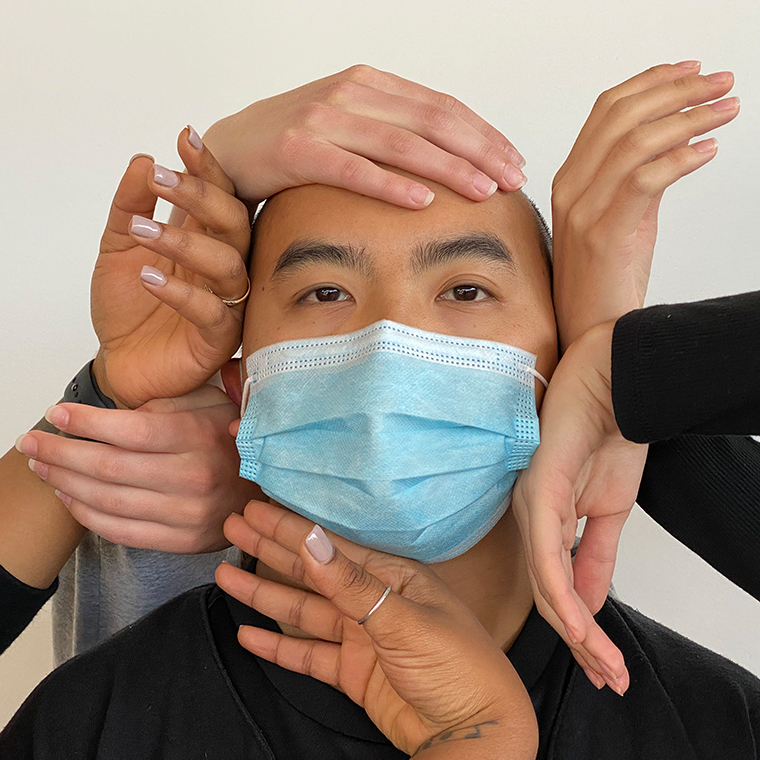When was the last time you stood next to a stranger without a mask and felt safe? In 2020, we imagined that, two years from now, things would be different: COVID-19 would have run its course and we would find our way out, maskless. So did Carl Flink, a University of Minnesota dance professor and Twin Cities choreographer.
At the request of Northrop program director Kristen Brogdon, Flink curated a selection of nine dance films made during the pandemic’s early days with the help of Joanie Smith, fellow dance professor and choreographer of Shapiro & Smith Dance.
The two partnered up with students to create the dance film “Dancing Our Way Out,” which premiered on Jan. 14 to Northrop audiences.
“As a dance-maker, what was really clear to me is that physical touch is one of the things that I know the members of my company and other dance artists were profoundly missing,” Flink said.
“Dancing Our Way Out” premiered nearly two years after COVID-19 was discovered and yet its subject matter still resonates today. The dance film will remain available on-demand, streaming on Northrop’s website through Jan. 21, and features seven student works and two faculty productions touching on collective trauma, isolation, oppression, depression, community and the inability to touch and hold what is human.
Each section is a new expression of the pandemic’s many lasting impacts while still allowing for hope and growth. “Dancing Our Way Out” is a raw outward expression of emotions that Americans have grappled with since March 2020.
“The piece still has a very specific resonance now because there’s still many people that are fearful of the idea of being in contact with others,” Flink said of the final piece and his own company’s contribution to the film, titled “A Dream of Touch When Touch is Gone.”
The film also features professor of dance and theater arts Ananya Chatterjea’s “The Turmeric From My Hands Will Stain Your Snow,” which focuses on her students’ efforts at self-discovery and leaving their mark on a world that feels hopeless.
As the pandemic shuttered performance venues, switching to unconventional performances was the only option, which opened up new creative possibilities for dancers. Soon enough, livestream dance performances and Zoom theater became the only option in the local and national arts scene, making digital performances like dance films the norm.
“When you’re making dance for the camera, you’re performing for a very observant single eye,” Brogdon said, adding that this allowed creators to play with camera angles, locations and editing.
To create the final product, Flink sorted through almost 40 student works in search of performances and stories that best took advantage of their predicament and could not be recreated on a stage.
“I got to steep myself in our student’s creativity again,” Flink said, “The depth of imagination and creativity that they manifested was really exhilarating. And honestly, watching them, I learned a lot.”
Lily Conforti, a recent graduate of the dance program and creator of “Please Don’t Stretch Out My Sweater,” made her film in a closet in her parent’s basement around the same time the rest of the world was hoarding toilet paper, utilizing the tight space to create a sense of claustrophobia. To her, the film is a “time capsule” of her early pandemic mental state.
“It does still feel a little bit trapping, like how are we gonna make it out of this?” Conforti said. “We’re still in this closet, in this pandemic, and still trying to figure out how to work through it. It still feels a little ongoing to me.”
Brogdon had similar feelings about the film’s release, saying, “We had expected it to be this big kind of closing celebration and instead I feel like we’re still kind of in the middle of everything.”
“Look how hard we’re working to do something that 12 months ago, we just took for granted,” Flink said. “Take hold of someone’s hand. Stand next to them without a mask. How the simplest gestures have suddenly become dramatic. Those discussions elevated the commitment and the passion … to making this project happen.”














